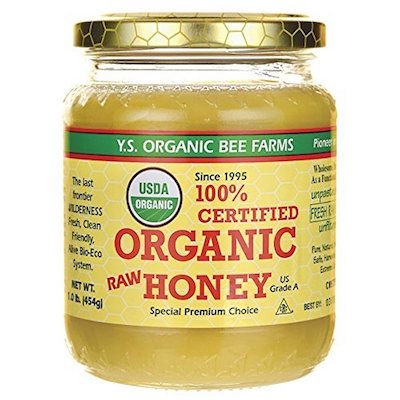How to Have a Sustainable Holiday Meal

The holidays are in full swing, which means you might want to serve a more eco-friendly meal when you entertain. If you haven’t already done so, now is a good time to start planning your menu and to get to the market. There is always the temptation to buy packaged stuffing mix, canned pumpkin, and a giant pre-brined turkey from a commercial farm to make things a little more convenient.
With some thoughtful planning and preparation you can have a healthier and more sustainable Thanksgiving meal. It is possible to better respect the environment this holiday with a few basic strategies and tips.
If you and your family are meat eaters and can't imagine Thanksgiving without a turkey, try to purchase a fresh turkey from a reputable farm, preferably local. You might want to consider a heritage breed, organic, or free range turkey. The meat is lean and tasty. And, a cage-free turkey generally cooks faster than a commercial turkey, saving on energy.
Buy one that is just enough for the table and maybe for sandwiches the next day so that there isn’t any waste. Skip the packaged dressing mix and stuff your bird with quartered apples, onion, and oranges. The infused flavor from these aromatics is amazing. Use the turkey carcass to make a giant pot of bone broth that you can freeze for the winter.
Plan to offer hearty meatless options for those who choose not to eat poultry, or if your family is vegetarian. Turkey substitutes, such as those made from tofu or seitan, are not really sustainable. If possible, make some fresh meatless entrees.
You can often make these a day or two in advance. A popular fall dish you can try is shepherd’s pie made with lentils, vegetables, and a cauliflower mash that can be made ahead and baked before serving. Another great main dish is acorn squash halves stuffed with brown rice, walnuts, and cranberries. You can prebake the squash and make the rice a day in advance. Just assemble and bake before serving.
When it comes to sides, think fresh vegetables and fruits that you can pick up at the farmer’s market. Or, shop for locally grown and seasonal produce in your grocery. Many stores now have foods that are grown locally and identified as such in a designated area of the store.
Items that are often in season this time of year are apples, winter squash, fresh cranberries, broccoli, brussels sprouts, and root vegetables. Plan on making healthy sides while your main dish is baking or roasting. You can roast brussels sprouts on a sheet pan in the same oven. You can also roast potatoes and yams for a healthier take on mashed potatoes. Cranberry relish can be made a couple of days in advance and kept in the refrigerator.
We don’t always think of sustainable beverages, as most are in bottles and cans and often have preservatives to prolong shelf life. One beverage that is sustainable is fresh apple cider from a local orchard. And of course, water is a great option. Place water in an attractive pitcher and add a few slices of citrus fruit to freshen it up. Purchase organic milk for the kids.
If alcohol is being served, look for wine that is made from grapes that are biodynamically grown or organic. If you are fortunate enough to live near a vineyard, get your wine from there. For beer, there are so many local craft breweries now where you can pick up beer that isn’t being shipped anywhere. This is also true for many handcrafted spirits.
The holidays are a time for enjoying family and friends and there will certainly be plenty of feasting! Consider making more sustainable choices this year when putting together your holiday meals.
With some thoughtful planning and preparation you can have a healthier and more sustainable Thanksgiving meal. It is possible to better respect the environment this holiday with a few basic strategies and tips.
Choose a Better Turkey
If you and your family are meat eaters and can't imagine Thanksgiving without a turkey, try to purchase a fresh turkey from a reputable farm, preferably local. You might want to consider a heritage breed, organic, or free range turkey. The meat is lean and tasty. And, a cage-free turkey generally cooks faster than a commercial turkey, saving on energy.
Buy one that is just enough for the table and maybe for sandwiches the next day so that there isn’t any waste. Skip the packaged dressing mix and stuff your bird with quartered apples, onion, and oranges. The infused flavor from these aromatics is amazing. Use the turkey carcass to make a giant pot of bone broth that you can freeze for the winter.
Select Meatless Options
Plan to offer hearty meatless options for those who choose not to eat poultry, or if your family is vegetarian. Turkey substitutes, such as those made from tofu or seitan, are not really sustainable. If possible, make some fresh meatless entrees.
You can often make these a day or two in advance. A popular fall dish you can try is shepherd’s pie made with lentils, vegetables, and a cauliflower mash that can be made ahead and baked before serving. Another great main dish is acorn squash halves stuffed with brown rice, walnuts, and cranberries. You can prebake the squash and make the rice a day in advance. Just assemble and bake before serving.
Serve Healthy Sides
When it comes to sides, think fresh vegetables and fruits that you can pick up at the farmer’s market. Or, shop for locally grown and seasonal produce in your grocery. Many stores now have foods that are grown locally and identified as such in a designated area of the store.
Items that are often in season this time of year are apples, winter squash, fresh cranberries, broccoli, brussels sprouts, and root vegetables. Plan on making healthy sides while your main dish is baking or roasting. You can roast brussels sprouts on a sheet pan in the same oven. You can also roast potatoes and yams for a healthier take on mashed potatoes. Cranberry relish can be made a couple of days in advance and kept in the refrigerator.
Drink Sustainable Beverages
We don’t always think of sustainable beverages, as most are in bottles and cans and often have preservatives to prolong shelf life. One beverage that is sustainable is fresh apple cider from a local orchard. And of course, water is a great option. Place water in an attractive pitcher and add a few slices of citrus fruit to freshen it up. Purchase organic milk for the kids.
If alcohol is being served, look for wine that is made from grapes that are biodynamically grown or organic. If you are fortunate enough to live near a vineyard, get your wine from there. For beer, there are so many local craft breweries now where you can pick up beer that isn’t being shipped anywhere. This is also true for many handcrafted spirits.
The holidays are a time for enjoying family and friends and there will certainly be plenty of feasting! Consider making more sustainable choices this year when putting together your holiday meals.
You Should Also Read:
Healthy and Natural Gift Ideas
3 Ways to Simplify the Holidays

Related Articles
Editor's Picks Articles
Top Ten Articles
Previous Features
Site Map
Content copyright © 2023 by Katherine Tsoukalas. All rights reserved.
This content was written by Katherine Tsoukalas. If you wish to use this content in any manner, you need written permission. Contact Katherine Tsoukalas for details.








